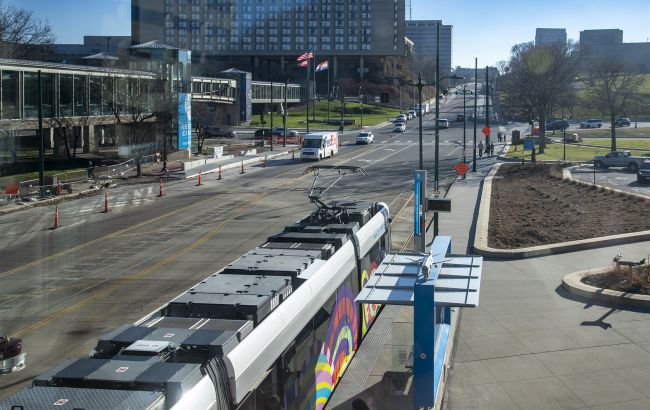Trump’s administration stops funding for 'road diets' that reduce crashes
 Trump blocks funding for 'road diet' projects (Illustrative photo: Getty Images)
Trump blocks funding for 'road diet' projects (Illustrative photo: Getty Images)
President Donald Trump’s administration is rolling back support for "road diets" — a once-endorsed street design strategy proven to reduce crashes, AP News reports.
In Kansas City, Missouri, where speeding cars routinely crashed into businesses, locals turned to a method known as a "road diet" — cutting lanes to slow drivers.
The change came in 2022 when a gas line installation allowed the city to reduce four lanes to three, adding protected parking and safer crosswalks.
Bobby Evans, an urban planner involved in the initiative, called it "a smashing success," noting, "You’re really not slowing them down. You’re bringing them back to the speed limit."
Such redesigns are now standard whenever the city repaves a road, especially those with fewer than 25,000 vehicles daily.
Kansas City joins cities like Philadelphia, Portland, and Fort Lauderdale in reporting major safety gains. Philadelphia saw a 19% drop in injury crashes, and Portland reduced high-speed traffic by over 70%.
Trump officials reject lane reductions, citing congestion risks
Despite this track record, Trump’s Department of Transportation has withdrawn federal support for projects that reduce lane capacity, warning that "forcing travelers into more constrained spaces can lead to crashes, erratic maneuvers, and a false sense of security."
Critics, like Leah Shahum of the Vision Zero Network, fear this shift undermines decades of traffic safety progress: "That would be a real loss."
 Trump says 'road diets' make roads less safe (Illustrative photo: Getty Images)
Trump says 'road diets' make roads less safe (Illustrative photo: Getty Images)
Opposition to road diets has grown in some Republican-led states. Florida passed a bill requiring reviews before any lane cuts, while Texas blocked a project in San Antonio mid-way through planning.
Still, studies show no significant impact on emergency response times. "The road diet didn’t cause a level of congestion that slowed them down," said University of Iowa researcher Cara Hamann.
Trump’s retreat from road diets adds to a pattern of environmental and urban deregulation.
Just days earlier, the administration lifted long-standing protections on a 490,000-square-mile Pacific ocean reserve to allow commercial fishing — a move that drew sharp criticism from scientists, who warned it could devastate fragile marine ecosystems.

